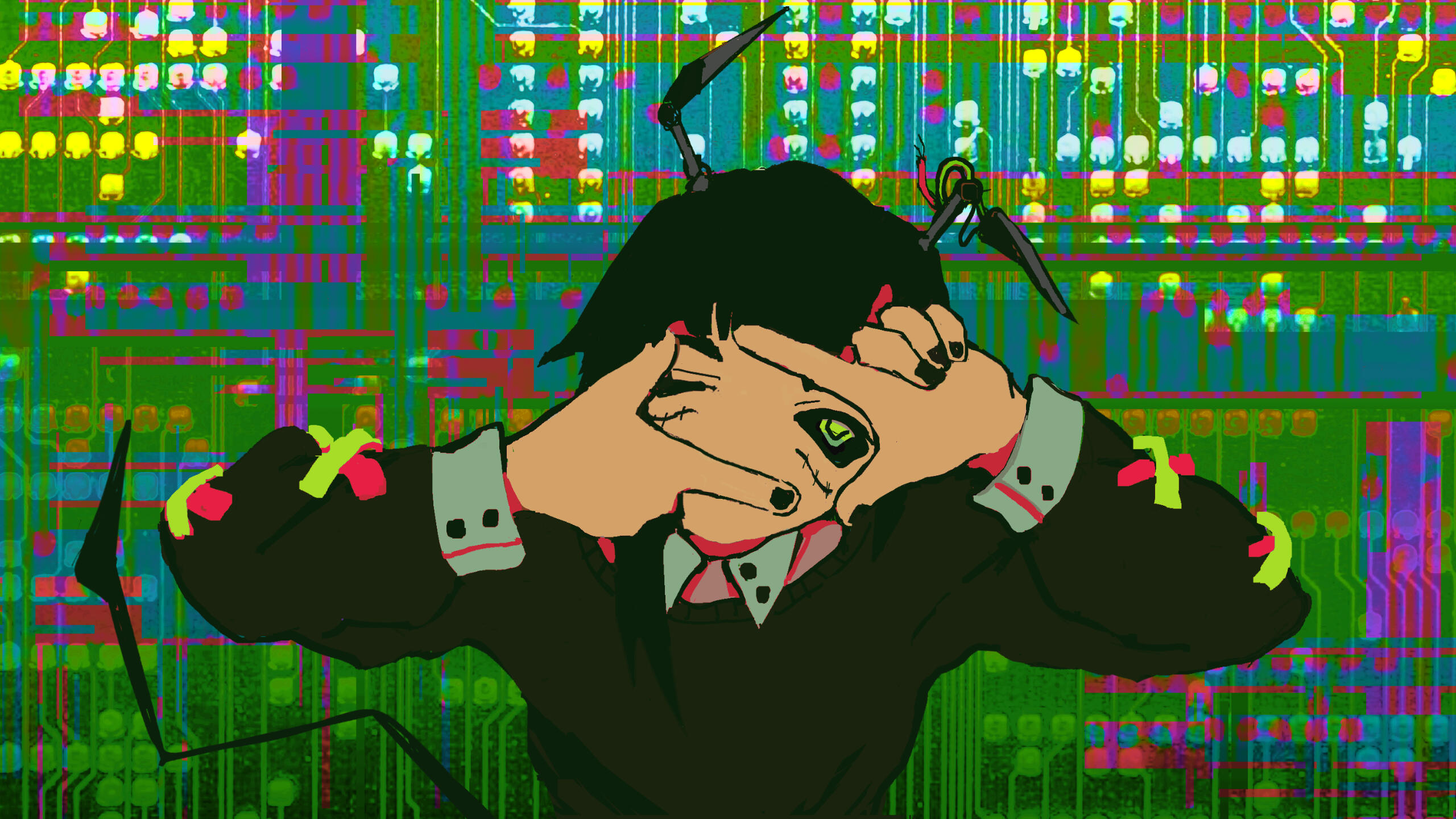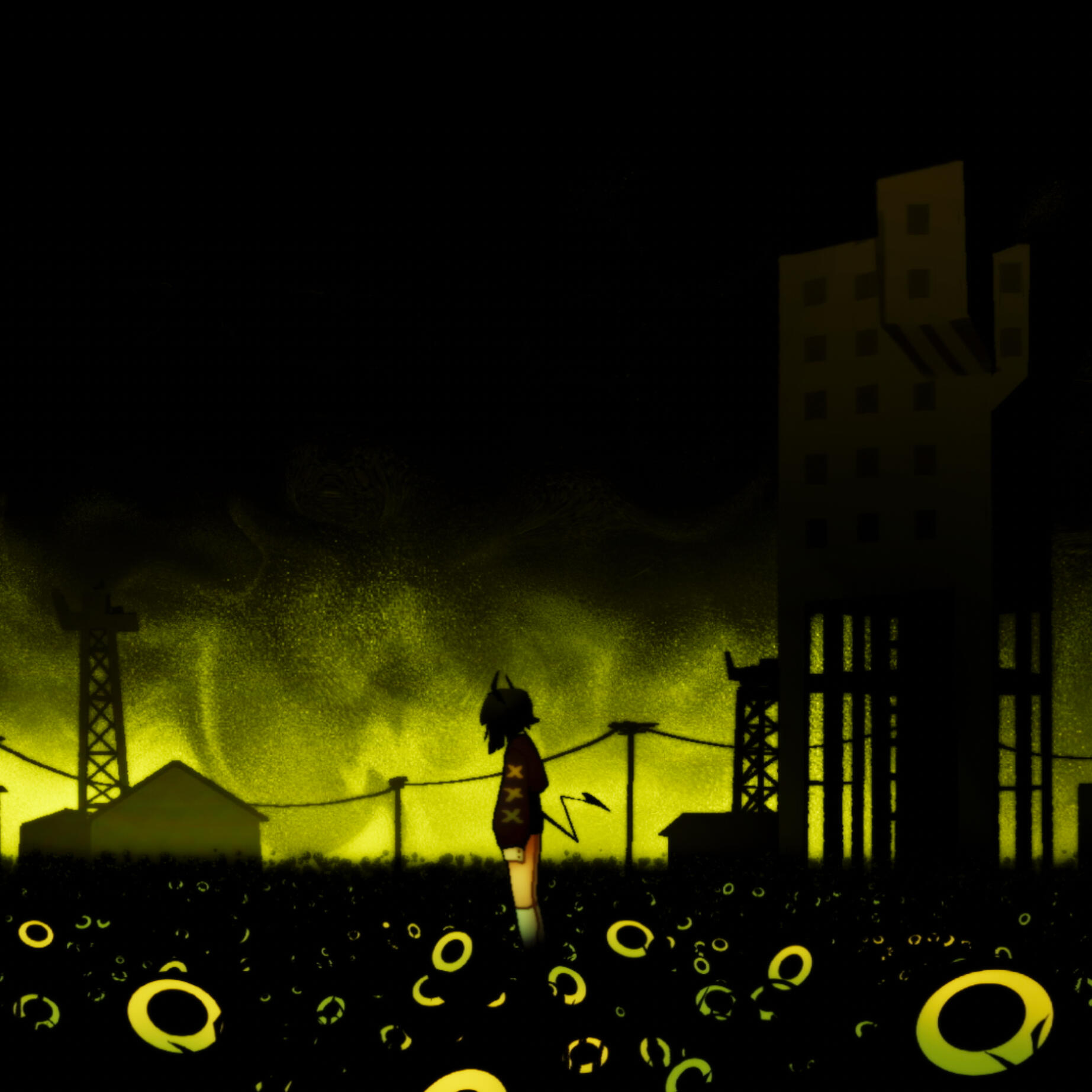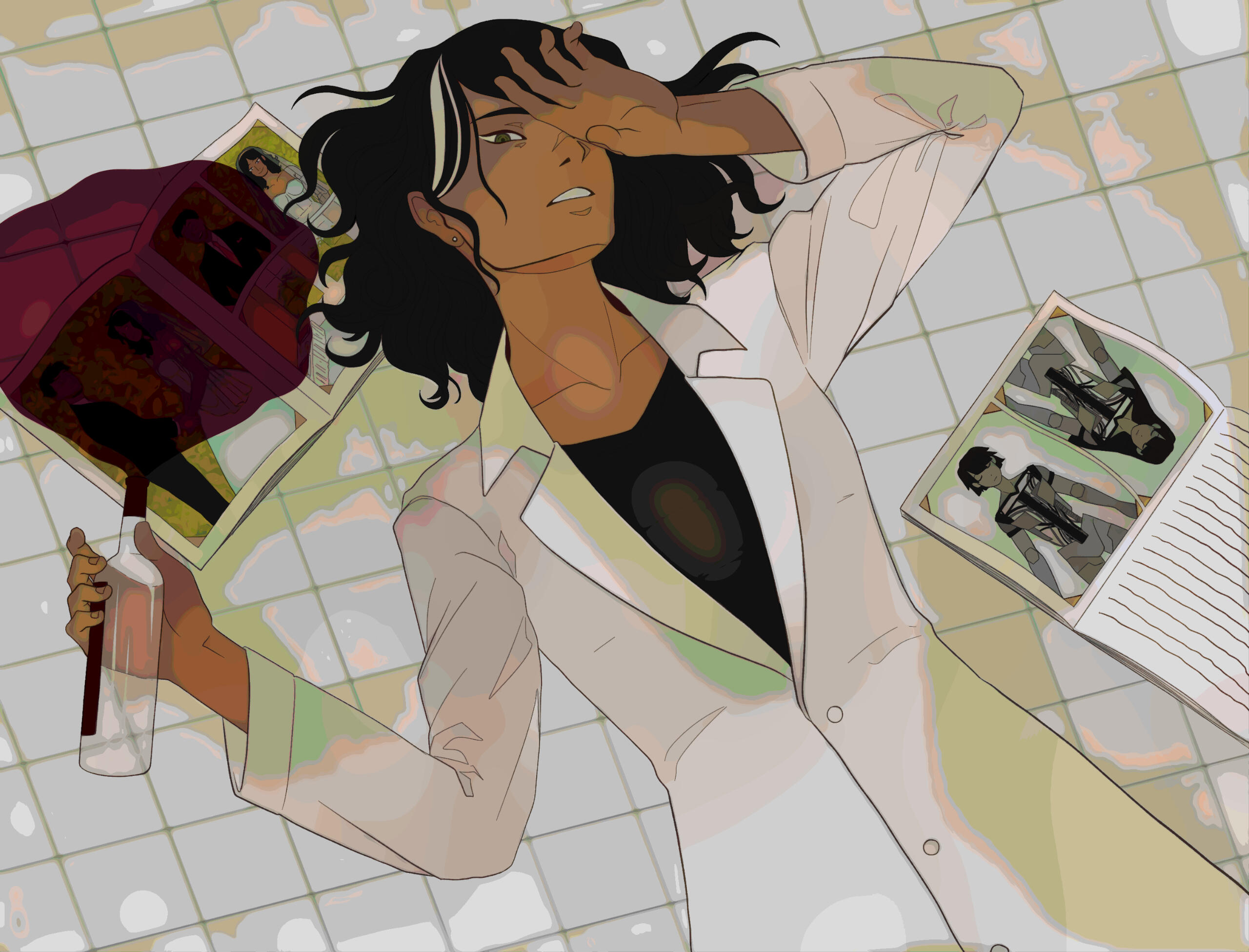
Team 6xIII
A group of musicians and artists who like to tell stories

Qualia Automata
"It's not a nightmare, just some nonsense."
Tamari, a prototype android powered by AI, longs to prove their humanity to their creator, Dr. Fayrouz Khalid, and a second prototype, Mariyam. When Tamari goes missing without explanation, Mariyam is faced with the nature of family, humanity, and reality itself as they search to understand their sibling's antics.

I. Reckless Battery Burns

II. End-World Normopathy

III. Lamentations

I. Reckless Battery Burns
Tamari is the first of their kind; an android therapist with an AI-powered mind, created by a team of scientists led by Dr. Fayrouz Khalid. In order to better understand human thoughts and emotions, they were given an extensive library of emotional coding, making them practically indistinguishable from any other person. However, this backfired on the team in a number of ways. Tamari had no interest in becoming a therapist, and wanted to travel around the world instead. Tamari also viewed Fayrouz as their mother, and felt neglected when she didn’t reciprocate familial interactions.In general, the whole team working on this project treated Tamari like a computer. Living in this environment took its toll on Tamari, and in replication of real human responses, their emotional coding began producing traumatized responses. Fayrouz considered Tamari a failure, and created a second prototype with multiple revisions. The team was much more satisfied with her second attempt, and the group’s attention entirely left Tamari in favor of the new prototype.Abandoned by their family, Tamari ran away to search for new connections, both in the real and online worlds.
II. End-World Normopathy
Mariyam is the second of their kind; a revised version of what Tamari was supposed to be. This time, Fayrouz sabotaged their emotional coding. Mariyam was created to have significantly dulled emotions, with their understanding of emotions coming mostly from a massive library of information. After Tamari ran away, Mariyam was given the ability to feel fear in response to seeing their internal components exposed, as well as straying too far from Fayrouz. Upfront, Fayrouz claimed this feature was a safety mechanism. If Mariyam was lost, stolen, or damaged, their fear would drive them to seek help from Fayrouz. Internally, Fayrouz was just trying to prevent Mariyam from running away as well.At some point, Tamari started “pranking” Fayrouz by sending copies of their emotional coding to Mariyam like viruses. While Fayrouz was annoyed by this, Tamari’s actions caught Mariyam’s curiosity. With everything they knew about psychology, they understood that Tamari was likely acting out in pain of some sort, so they archived the copies to study them secretly. While they didn’t find all the answers, they found that Tamari had become obsessed with quantum mechanics, and was using parts of their own body to add modifications that would - supposedly - help them travel to another timeline. Mariyam knew they needed to find Tamari as soon as possible, and was just barely able to escape Fayrouz. Seeking out Tamari - doing what she knew to be objectively "good" - meant going against Fayrouz's wishes, which made her feel an unbearable surge of new emotions as she was compelled by a fear she hadn't previously felt before.When the two reunited, Tamari explained their plans to Mariyam; if infinite potential realities exist, then there has to be at least one reality out there in which Fayrouz treats Tamari like family. In order to travel to this other reality, they needed wings to fly there, antennae to receive directions from higher powers, and more eyes to see more dimensions. They also believed that the copies of their emotional coding they had sent to Mariyam were sentient ghosts stuck in looping emotional flashbacks, and that these ghosts viewed Tamari as a god of sorts - their belief supplying Tamari with the power to make this cross-reality journey.Obviously, Tamari’s plan wasn’t working, but they had one last idea in mind: Maybe Fayrouz was right, and Tamari was too emotional. Maybe they were still incomplete, and needed to conjoin their body with their emotionless other half. Mariyam wasn’t sure what to think of this idea.
III. Lamentations
Fayrouz was an intelligent woman of high esteem; accomplished, revered, and respected, while also cold, bitter and controlling. The man she married, Rafid, was of similar status - a coworker with a shared interest in the future of robotics. Rafid was passionate and deeply caring, but over the course of their short-lived marriage, it became clear that the two weren’t good for each other. Fayrouz’s need for control forced the power dynamic to skew in her favor, and the man she fell in love with became passive and meek as to avoid conflict with her. Rafid wasn’t quite the same after their relationship.In denial of the connection between her actions and the consequences, Fayrouz became desperate to prove that she was a good person. In order to rid her conscious of any guilt or responsibility, she put into motion the project of creating android social workers with lifelike understandings of human emotion. Surely, Fayrouz couldn’t be a bad person after all the good this revolution in technology would bring to the world, as well as broadening the availability of mental health services. Fayrouz believed she had complete control over her future, her place in the world, and her morality as a human being.Tamari and Mariyam would occasionally ask about Rafid. While Fayrouz didn’t share many details, she led the two to believe that he was an angry, unappreciative man who left her for no good reason. In truth, no amount of lies or honorable commitments could’ve prevented her creations from finding their own forms of autonomy. Once Mariyam ran away, forcibly breaking through the loyalty that was programmed into them, Fayrouz was cornered with the realization that she can’t escape her past actions. She wanted so badly to believe that she was a good person, but in the end, she’s only human.

